Brothers in battle in the first window of the FIBA Asia Cup 2021 Qualifiers
BANGKOK (Thailand) - It's always fun to play with your closest friends, but it's even better when you can play with your actual brothers. That was the case for these players at the Asia Cup Qualifiers.
BANGKOK (Thailand) - Fans will hear it from players now and then when they talk about their teammates. “These are my brothers,” they’d say, “I always love playing with these guys; they are like brothers to me.” It is a bond that is forged over many hours, days, months, or even years of competing, practicing, and just being together
In some exceptional cases, the “brotherly” connection takes on a literal sense rather than just a figure of speech to represent how close these teammates are. Some of these players have the rare chance to play with their siblings at the national team level.
Here are the “Brothers in Battle” that showcased their talents in Window 1 of the Asia Cup Qualifiers!
Mekeli, Russell, and Tai Wesley (GUM)
Combined efficiency per game: 17.0
We start with a very special case in the Wesleys. While the other sets of siblings listed here come in pairs, the Wesleys are packaged as a trio. The three were already crushing through the competition at the Pre-Qualifiers, and they all saw playing time in Guam’s first game at the Qualifiers.
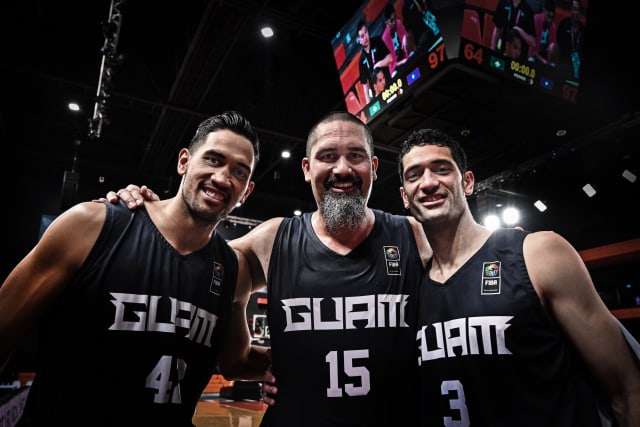
Big brother Mekeli, 41-years-old, put up an identical statistical output as that of the youngest of the three, Tai, with 6 points, 2 rebounds, and 1 assist. Meanwhile, Russell grabbed 2 rebounds in fewer limited minutes of play.
Joji and Kosuke Takeuchi (JPN)
Combined efficiency per game: 19.0
The Takeuchi twins can be considered the OG of sibling pairs in Asian basketball, having already played together on the national team at the Asia Cup 4 times. The two are 35 years old this year, but still going strong as versatile inside presences for the Akatsuki Five.
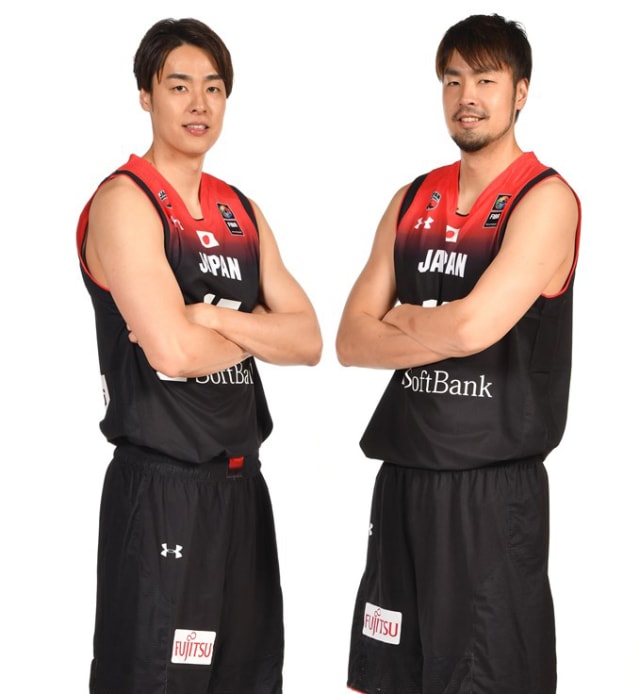
Their roles have been scaled back a bit with the rising talent of Japan’s youngsters, but each of the twins is still effective.
In their first game of the Asia Cup Qualifiers, Kosuke was a bit more productive than Joji with 8 points, 6 rebounds, and 1 assist. Joji had only 3 points and 3 rebounds, but he displayed his ability to stretch the floor with a corner three-pointer in a massive win over Chinese Taipei.
Mohammed and Mathna Almarwani (KSA)
Combined efficiency per game: 19.5
It's not a big surprise that the Almarwanis are both doing so well for Saudi Arabia. Their father was one a former national team captain and one of the best players in the squad over 25 years ago.
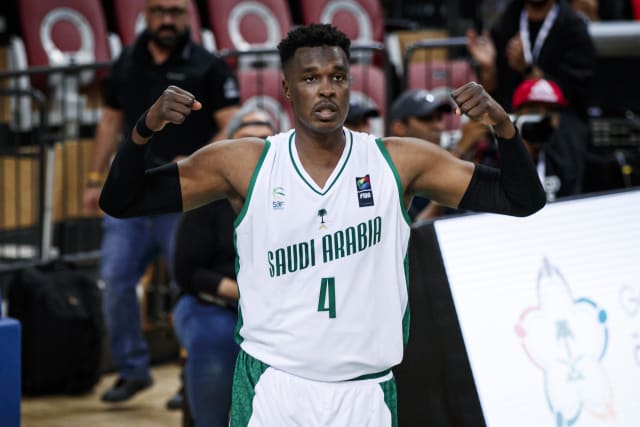
The elder 30-year-old Almarwani (Mohammed) was an important big-man presence for Saudi Arabia in their Window 1 games. It was evident how important he was to the team as they struggled against Syria when the big man was in foul trouble. Mohammed ended up with averages of a solid 8.5 points and 7.0 rebounds per game.
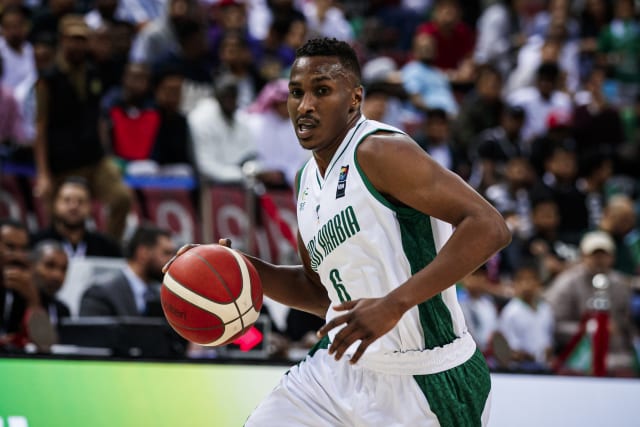
While Mohammed was holding it down in the paint, Mathna was roaming the perimeter for his team. The 28-year-old was stellar in Saudi Arabia’s win over Qatar, scoring 20 points and making four three-pointers. He was cold in their second game and missed all of his three-point attempts, but had a decent Window 1 run with 12.0 points, 6.0 rebounds, and 3.0 steals per contest.
Mohammed and Muzamil Hamoda (BRN)
Combined efficiency per game: 28.0
Bahrain has a bright future ahead of them, as signaled by their 68-67 win over India in their very first Asia Cup Qualifiers game. The duo of Mohammed and Muzamil Hamoda are the prime reason why teams might have to start watching out for Bahrain in the near future.

25-year-old big brother Mohammed had already been a crucial part of the national team throughout both Pre-Qualifiers stages. In these opening two games, he’s continued to be rock solid with 13.0 points and 5.0 rebounds per game. Mohammed displayed a soft touch shooting from midrange, which mixes well with his size and strength.
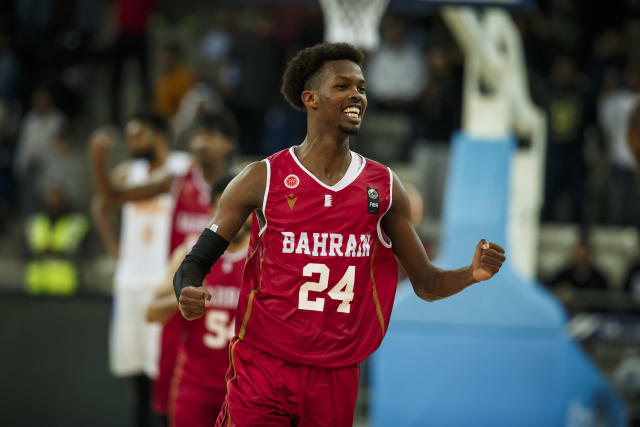
The young Muzamil, on the other hand, has been a revelation for Bahrain. The Asia Cup Qualifiers was his first official run playing for the senior national team. Despite only recently turning 18-years-old, he was one of the better players on the team.
The 1.99M (6’6”) forward put on a show in his very first game with a highlight dunk against India and, though he had a hard time against a more talented Lebanon team, has caught the eye of basketball fans all over the region. Muzamil averaged 10.5 points and 5.0 rebounds per contest in his first two games at the senior level.
Kiefer and Thirdy Ravena (PHI)
Combined efficiency per game: 33.0
Some - ahem - expected Kiefer to be a player to watch in Group A of the Asia Cup Qualifiers in Window 1. While the elder 26-year-old sibling had a solid game of 10 points, 3 assists, and 4 steals, it was quite clear that his younger brother outdid him in this game.
After seeing only sparing minutes at the World Cup Qualifiers, 23-year-old Thirdy exploded in his return to the senior national team with 23 points, 8 rebounds, and two big-time blocks, which is starting to become his signature play. He also knocked down 3 three-pointers on four attempts.
when you're having a good game and you know it 😤 #FIBAAsiaCup Qualifiers @ThirdyRavenaaa @Sports5PH @officialSBPinc
— 🏀FIBA Asia Cup (@FIBAAsiaCup) February 23, 2020
🏀https://t.co/SnT5CT7VH9
💻https://t.co/SeZIVnjMrQ
📱https://t.co/PmMe4SFSjX pic.twitter.com/m77CEkqUO7
Kiefer and Thirdy even connected on a high-flying aerial play in their win over Indonesia, which would be easy to caption with a pun involving a specific type of bird that has a similar name as that of their family names. That might be a little bit too easy, though.
Salim and Sani Sakakini (PLE)
Combined efficiency per game: 56.5
It’s impressive that little brother Sani alone nearly topped all of the other siblings on this list by himself with an average efficiency rate of 31.5 per game. However, the elder Salim put up a good game himself in the historic game against Sri Lanka.
The 32-year-old Salim didn’t play in Palestine’s nailbiter against Kazakhstan but put up 22 points and 7 boards in their blowout win over Sri Lanka at home.
Sani was spectacular in both games for Palestine, not only shining as the best player on the team but one of the best in the entire Asia Cup Qualifiers so far. He’ll be the last to take all of the credit for Palestine’s promising start, but they're no denying how big of a factor the 31-year-old has been with his averages of 31.5 points, 11.5 rebounds, 2.5 assists per game while also shooting nearly 50.0 percent from downtown.
FIBA